Principals/Senior Partners Julie Ann Gustanski, PhD, LLM, AICP
Julie Ann Gustanski – Resource Dimensions’ CEO and co-founder, has nearly 25 years of combined experience as an economist, policy analyst, certified planner, resource manager, land conservation and fund development specialist. Her work centers on interactions between society and institutions, including: economics, policy and ethics, in relation to issues of sustainability planning, community economic development, land use, conservation, parks, public lands, fund and policy/program development, natural resources, and environmental and social policies. Julie holds a Ph.D. in Ecological Economics, a M.S. in Urban Design and Regional Planning and an L.L.M. in Planning Law from the University of Edinburgh (UK), an M.E.M. in Resource Management, Policy and Economics from Duke University, and a B.S. in Legal Studies and Environmental Policy, from the University of Minnesota. Supplemental coursework includes mediation, conflict resolution, planning, and environmental and land use law at Vermont Law School, and land conservation strategies at Duke University. She has also attained CFRE certification in philanthropic fundraising. Formerly, she was a litigation assistant and law clerk, specializing in land use, toxics, real estate, and environmental issues. She has over 20 years experience in conducting legal research, preparing legal testimony, and has served as an expert witness in a variety of cases. More recently, she was an assistant professor of economics at Rensselaer Polytechnic Institute in New York, and co-founder of 4Ever Land Conservation Associates, a land use consulting firm. She has also taught graduate and undergraduate courses in economics, land use, environmental policy, and qualitative data analysis at the University of Edinburgh, and as an adjunct visiting professor in the Ecological Economics program at Chulalongkorn University, Bangkok, Thailand. Dr. Gustanski’s work with governments, tribes, and the private, academic, and non-profit sectors in the U.S. and abroad has facilitated the development of partnerships that extend across cultural and socioeconomic boundaries. During her 20+ year professional tenure in the conservation community she has developed easement, PDR (purchase of development rights) and TDR (transfer of development rights) programs in several states, directed a multi-million dollar farmland preservation program, served as executive director of a land trust, co-founded the Pennsylvania Land Trust Association, and has been instrumental in the preservation of over a million acres of land across North America. She also recently co-authored and edited the book Protecting the Land: Conservation Easements Past, Present, and Future. She is broadly recognized for her work in melding issues of social responsibility, economic stability and environmental health, with impact analysis and sustainability criteria to develop enduring interdisciplinary program and policy solutions. Areas of expertise include: impact analyses, feasibility studies, economic development, fiscal impact, ecosystem services, non-market and social capital valuation, strategic land acquisition and conservation planning for farm, natural and historic lands, parks, trails, and other public land resources; land trusts, conservation easements, water rights, demand forecasting, cost/benefit analysis, and non-profit management. Julie has also developed strategic business plans, marketing concepts and funding strategies that have produced nearly $40 million in funds since 1989 for a variety of land acquisition, conservation, restoration, and park-oriented projects and programs. Over the past twenty years, Julie has served in various capacities to organizations such as the Land Trust Alliance, American Farmland Trust, National Park Foundation and The Nature Conservancy, as well as numerous community-based organizations involved in issues of community, sustainability and social venture. She has provided one-third of her work on a pro bono basis to various organizations, and currently serves as chair of the Greater Gig HarborFoundation, a regional foundation based in Gig Harbor, Washington. The following is a select list of recent projects in which Julie has led or served as project manager, principal, or co-principal:
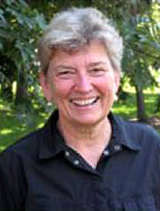 Dr. Dorothy H. Anderson – is Head of the Department of Parks, Recreation and Tourism Management in the College of Natural Resources at North Carolina State University and a senior partner with Resource Dimensions. Previously, Dorothy was a professor in the Department of Forest Resources at the University of Minnesota, where she served in various capacities for 18 years. Dr. Dorothy H. Anderson – is Head of the Department of Parks, Recreation and Tourism Management in the College of Natural Resources at North Carolina State University and a senior partner with Resource Dimensions. Previously, Dorothy was a professor in the Department of Forest Resources at the University of Minnesota, where she served in various capacities for 18 years.
Dorothy has 26 years experience in conducting complex qualitative analysis. Previously, she worked for the USDA Forest Service, North Central Forest Experiment Research Station as a research social scientist. She has also worked as a social forestry advisor with USAID in New Delhi, India, and as a consultant to the Minnesota Department of Natural Resources. Dr. Anderson’s current work centers on teaching and advising students in the study and analysis of human dimensions of resource management and conducting research on the socio-psychological aspects of natural resource recreation. She has led numerous agency-based projects for the USDA Forest Service, National Park Service, U.S. Fish & Wildlife Service, and the U.S. Army Corps of Engineers. She is widely recognized across the nation as a leader in the field of human dimensions of natural resource use. The following is a select list of recent projects in which Dr. Anderson served as project manager, principal or co-principal investigator:
 Carey M. Bare, MS, AICP is a Resource Dimensions' principal, senior planner and policy analyst. He has over 30 years experience in environmental and land use planning, natural resources management, master, site, facilities and infrastructure planning, and environmental impact assessment. His broad experience includes environmental consulting, teaching environmental science at New England College, community comprehensive planning, and master planning for large residential and commercial developments. Carey has been AICP certified since 1991. He holds a B.S. in Natural Resources Management from the University of Massachusetts at Amherst and a M.S. in Environmental Studies from Antioch University New England in Keene, New Hampshire. Carey M. Bare, MS, AICP is a Resource Dimensions' principal, senior planner and policy analyst. He has over 30 years experience in environmental and land use planning, natural resources management, master, site, facilities and infrastructure planning, and environmental impact assessment. His broad experience includes environmental consulting, teaching environmental science at New England College, community comprehensive planning, and master planning for large residential and commercial developments. Carey has been AICP certified since 1991. He holds a B.S. in Natural Resources Management from the University of Massachusetts at Amherst and a M.S. in Environmental Studies from Antioch University New England in Keene, New Hampshire.
Carey has extensive environmental planning experience working for the University of California at Los Alamos National Laboratory. There he developed a comprehensive plan for the 45 square mile site which integrated mission, land use, infrastructure, transportation, security and environment, safety and health. He developed and in some cases managed the implementation of natural resources plans for wildfire management, threatened and endangered species, and biological resources. Carey worked with multiple regional land management entities, including the Department of Energy, USDA Forest Service, National Park Service, Pueblos and other stakeholders and co-founded the East Jemez Resource Council to facilitate interagency communication, cooperation and collaboration on natural resources management issues. In addition, he completed multiple environmental analyses and assessments and managed a $600M construction project planning program. Some of Mr. Bare's recent projects include:
Dr. Bergmann has focused his research interests on the development of power economics and renewable energy in the United Kingdom and the United States. He has conducted extensive analysis on green certificate markets, attributes of renewable energy investments, and public preferences and willingness-to-pay for ‘green’ energy. His recent work is on the international front-line of analyzing and developing mechanisms to promote renewable energy markets. Ariel has broad experience with the development and use of contingent valuation surveys, choice experiments, hedonic models, and game theory models to value various social preferences and environmental attributes. Particular expertise includes the use of choice modeling and the valuation of non-market goods and services, applied econometric analysis, and microeconomic modeling. His work broadly includes issues of social sustainability, provision of health and psychological services, value of leisure and recreation activities, transportation, local government services, environmental valuation studies and renewable energy projects. Dr. Bergmann currently manages both the Edinburgh and Stirling, Scotland field offices. Recent projects include the following in which Ariel has served as project manager, principal economist, and/or principal or co-principal investigator:
Roger Coupal is an associate professor of economics and Head of the Department of Agricultural and Applied Economics at the University of Wyoming, and a senior applied economist with Resource Dimensions. He has worked in several states throughout the west and has conducted substantial bodies of work in the area of community economic analysis and natural resource management. Roger holds a Masters degree in Agricultural Economics from the University of Arizona, and a Ph.D. in Economics from Washington State University. His expertise is in regional impact analysis, computable general equilibrium modeling, and fiscal impact analysis as it relates to natural resource management issues. In particular, his work includes fiscal impact analysis, GIS applications in economic analysis, natural resource policy, the NEPA process, and public lands policy. Dr. Coupal has been involved in a series of open space studies and economic issues related to wildlife habitat, snowmobiling, agricultural sustainability, community planning, recreation and tourism, energy development impacts, and fiscal impact modeling for various county and state resource agencies. Roger has worked on several resource management plans (RMPs) and related EIS documentation for the USDA Forest Service and the BLM. He also served on the ENR Review Committee for Research pertaining to NPS Winter Use Plans, where he was responsible for the review of the Greater Yellowstone Winter Use Plan. Project work includes assessment of salmon habitat policy in Idaho, electricity deregulation in the Pacific Northwest, agricultural development on Arizona Indian Reservations, and several community level models for local economic development. Recent Projects include the following in which Roger served as project manager and/or primary investigator:
Tom holds a Ph.D. in Agricultural and Resource Economics from Oregon State University, an M.S. in Agricultural and Resource Economics from the University of Newcastle-upon-Tyne (UK) and B.A. cum laude in Economics from Harvard University. Dr. Daniels is the author of When City and Country Collide: Managing Growth in the Metropolitan Fringe (1999), and co-author of Holding Our Ground: Protecting America's Farmland (1997) and The Small Town Planning Handbook (2003), published by the American Planning Association. He has also authored numerous book chapters, journal articles, conference papers and presentations, and professional reports on the subjects of farmland and open space preservation and planning. He is currently a member of the American Planning Association and the Land Stewardship Committee for the Lancaster County Conservancy. He is also senior contributing editor to Farmland Preservation Report, and serves on the Board of Trustees of the Orton Family Foundation. For nearly a decade, Tom managed Lancaster County, Pennsylvania's nationally-recognized farmland preservation easement acquisition program. During his tenure the program had an annual budget of over $4 million, preserved over 16,000 acres in 188 easement projects, and assisted the Planning Commission staff with growth management and agricultural zoning issues. The program received the 1993 Outstanding Program Award from the Small Town and Rural Planning Division of the American Planning Association and the 1996 National Achievement Award from the American Farmland Trust. Recent Projects include the following in which Dr. Daniels served as project manager, principal or co-principal investigator:
Chuck Harris, Ph.D. is a professor in the Department of Conservation Social Sciences at the University of Idaho and a senior resource social scientist with Resource Dimensions. He has 25 years of experience as a social scientist, policy analyst, and resource planner. Chuck has conducted numerous natural resource projects that have applied sociology, social psychology, social capital and socio-economic analysis to a variety of natural resource topics, including assessment of the impacts of resource management activities on communities in the western U.S., rural development planning, the diverse values of natural resources, organizational change in resource management agencies, and various resource policy issues. Dr. Harris has led numerous public participation and community involvement projects related to economic and community development and natural resource management. His work seeks to provide greater understanding of community-based development trends and strategies in the Northwest, and the role of amenity uses of natural resources for triggering economic development. Chuck's work covers public involvement, community-based collaborative processes, and facilitation in the context of environmental decision-making and strategic resource planning. He is nationally recognized for his work and writings on the use of qualitative and quantitative analysis of human-resource interactions. Recent clients include the U.S. Army Corps of Engineers, USDA Forest Service, BLM, and state and local agencies in the Pacific Northwest. A select list of Chuck’s recent projects include:
Previously he was a regional social scientist for the USDA Forest Service for nearly 20 years in Alaska, Washington, D.C. and Seattle. During his tenure with the USDA Forest Service, he participated in planning projects and programs of social research related to wilderness, subsistence use of natural resources, outdoor recreation, and social impact assessment in natural resource decision making. He conducted analysis of public issues and management concerns, identification of social conditions, and social impact analysis of alternatives for Chugach and Tongass National Forest Land and Resource Management Plans. He was also the National Social Impact Assessment Coordinator for the roadless area review (RARE II) team where he coordinated a task force to design a social analysis process for planning alternatives and supervised regional social analysis coordinators in seven USDA Forest Service regions. Dr. Muth's areas of expertise are in natural resource policy and the human dimensions of natural resources. His current research interests include the public policy-making process, conflict resolution, conservation of marine and freshwater ecosystems, and a broad array of social values and human activities related to natural resources, such as integrated water resource management, hunting and fishing, poaching, trapping, animal rights activism, and subsistence uses. He regularly conducts projects and prepares supporting reports for the USDA. Forest Service, U.S. Fish & Wildlife Service, non-profit organizations, and various state resource agencies. His recent projects include:
Larry Van Tassell is a nationally recognized leader in the field of rangeland and agricultural economics. Dr. Van Tassell is a professor and department head at the University of Idaho-Moscow, Department of Agricultural Economics and Rural Sociology, and a Resource Dimensions senior agricultural economist associate. Dr. Van Tassell has over 25 years of experience in the field of range economics, production economics, and farm and ranch management. He is considered one of the nation’s leading rangeland economists and has conducted numerous studies and economic analyses on state and federal policies and programs related to grazing and the management of state and federal lands. His primary areas of expertise over the past several decades has centered on state and federal lands grazing policies, private grazing leases, grazing systems, livestock production systems, multi-species grazing, strategic planning, and scenario analysis. Larry has worked across the Western states and has carried out a variety of studies for both state and federal agencies. Recent clients include those as the Wyoming State Land Commission, BLM, USDA Forest Service, as well as several state and county-based resource agencies. Early in his professional career, Dr. Van Tassell was also a ranch manager and beef herdsman in Utah. Some of Dr. Van Tassell’s recent projects include:
Joanne Vining is a professor of environmental psychology at the University of Illinois, Urbana-Champaign, in the Department of Natural Resources and Environmental Sciences, and a senior resource social scientist with Resource Dimensions. She established The Human Nature Research Laboratory in 1983 and has since lead its work. Dr. Vining has 25 years experience as an environmental psychologist and has conducted extensive applied research employing principles of psychology and sociology in assessing various resource policy issues. Her current work focuses on emotional components of environmental cognition, the collection and interpretation of public input to environmental cognition, the collection and interpretation of public input to environmental management and policy decisions, social content analysis, and visual impact assessment. Dr. Vining’s project work covers a variety of topics including environmental decision-making, perception and construction of environmental quality, public involvement, conservation behavior, and human-animal interactions and has largely been dedicated to providing qualitative data analysis and related services to federal, state, and local resource management agencies. She works frequently with clients including the USDA Forest Service, for whom she has conducted and reviewed dozens of social assessment and content analysis projects. She has also conducted similar projects for agencies as the National Park Service, State Parks, Illinois Department of Energy and Natural Resources, and the State of Illinois Office of Solid Waste Research. Joanne also serves on the Advisory Board for a new nonprofit called HomePlanet Inc. In addition to conducting environmental education and awareness campaigns, one of HomePlanet’s activities will be to open the Arts Recovery Center in which we will collect materials that would otherwise go to a landfill and resell them to local artists and schools for creative projects. Some of Dr. Vining’s recent projects include:
Jack has a unique combination of practical experience and education relevant to resource management, planning, environmental law, NEPA and the EIS process, conflict resolution and conservation/development strategies in the western United States. Before earning his Ph.D. from Berkeley, Wright earned his M.A. at the University of Montana in Missoula, and a B.A. in Geography from the University of Massachusetts at Amherst. He was the planning director in Mineral and Granite Counties during the 1970s and 1980s. During this time, he worked closely with the Lolo and Bitterroot National Forests on their Forest Management Plans in his capacity as a land use planner. Jack has decades of experience in working with a diverse client base in New Mexico and the West on issues ranging from comprehensive plan development to parks, trails, grazing, wilderness designation, and the Endangered Species Act. Jack has 27 years experience in land conservation, conservation easements, land exchanges, and the projects of land trusts. He served for seven years as a board member of the Five Valleys Land Trust in Missoula, Montana. This work included projects in the Rock Creek drainage that used BPA off-site mitigation money to purchase conservation easements. Recognized as a regional expert Wright has designed and implemented over 100 conservation easements from New Mexico to Montana. He completed conservation strategies for communities as diverse as Mesilla, New Mexico, Jackson, Wyoming, and Missoula, Montana. Wright was also one of the lead consultants on a land exchange that created the Rattlesnake Wilderness and National Recreation Area. This project used federal $14.3 million in coal leasing rights to compensate the Montana Power Company for their 21,027 acres of inholdings in the Lolo National Forest. As a cultural geographer, he is knowledgeable about New Mexico’s diverse cultures and their narratives about land use and conservation. He teaches courses in environmental planning, New Mexico resources, environmental law and regulation, cultural geography, and conservation. He is the author of four books on land conservation and resource policies and more than 150 articles and reports. Dr. Wright teaches courses in environmental planning, environmental law and regulation, cultural geography, and conservation planning. Some of Dr. Wright’s recent projects include:
|
|||
|
PROFILE
OUR WORK
JOIN USCONTACT US |
|


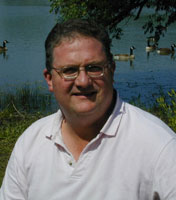
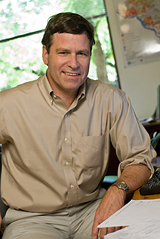 Tom Daniels is a Professor at the University of Pennsylvania's
Tom Daniels is a Professor at the University of Pennsylvania's 
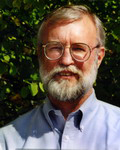 Dr. Robert (Bob) M. Muth is a professor in the Department of
Dr. Robert (Bob) M. Muth is a professor in the Department of 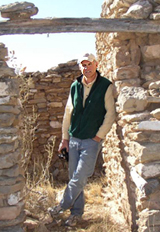 John (Jack) B. Wright - is Head of the
John (Jack) B. Wright - is Head of the